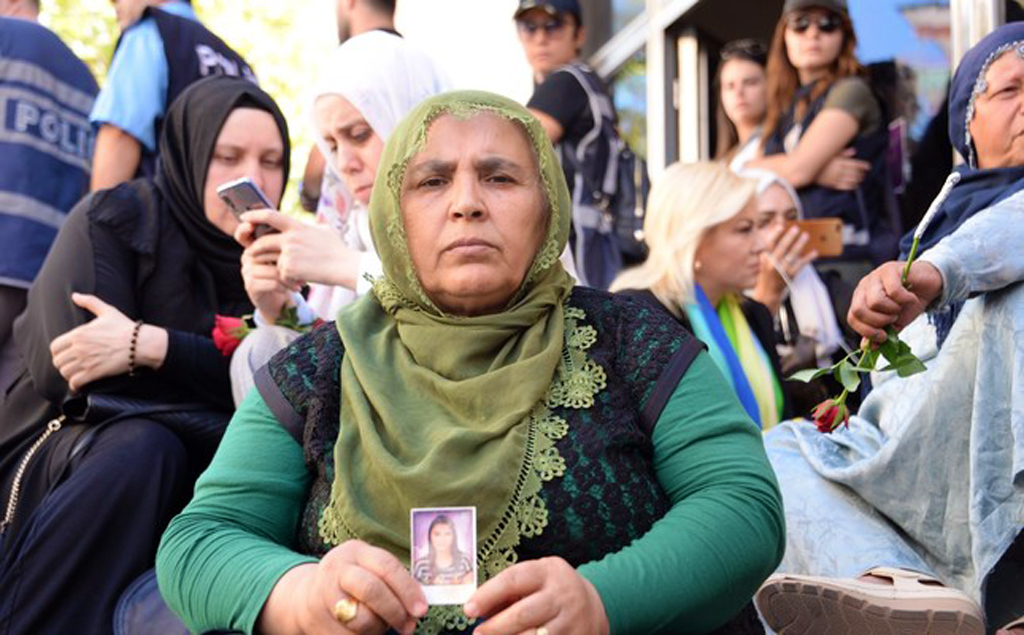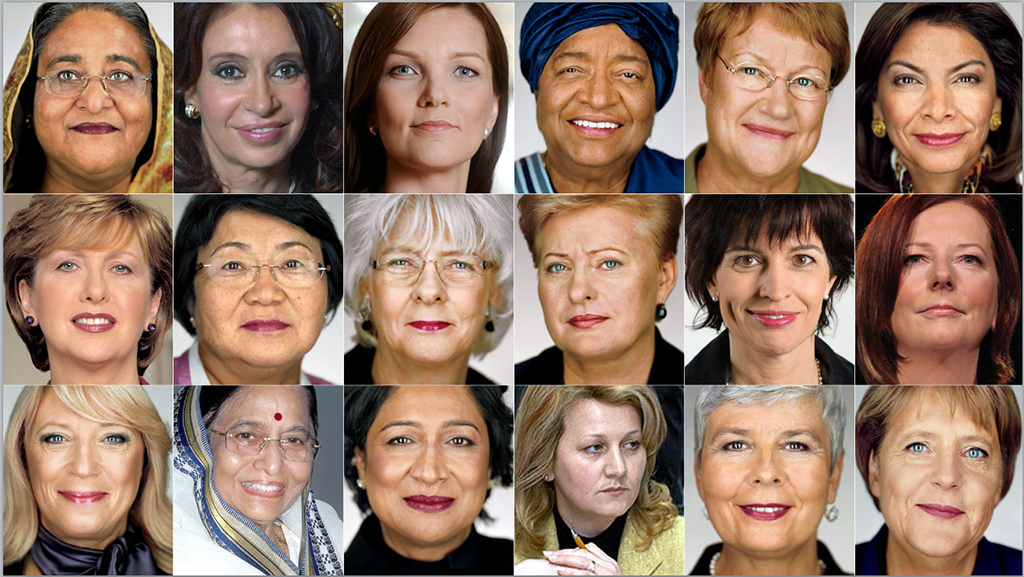Turkey, Russia and Iran continue to shape Syria's future
Çankaya Palace in Ankara was home to a historic trilateral summit on Monday. The presidents of Turkey, Russia and Iran met for the fifth time in two years to discuss the situation in Idlib, refugees, the most recent developments in northeastern Syria and the proposed constitutional committee.
More


Struggle of grieving Kurdish families who lost sons to PKK above all political concerns
Kurdish mothers, who have been staging a sit-in protest that is above all political ideologies and stances, demand their sons back from the PKK no matter what
More
In recent days, Turkish President Recep Tayyip Erdoğan's remarks added a new twist to this mix. On the one hand, he is laying the groundwork for his upcoming address to the United Nations General Assembly, conveying messages to relevant world leaders. At the same time, Erdoğan is unveiling his new road map for party politics. Two topics, i.e. emerging political movements and the safe zone/refugee debate, have been around for some time. The third issue, Turkey's intention to obtain nuclear warheads, is new.
The second half of September will be a busy season. Turkey, Russia, and Iran will hold a trilateral summit on Sep. 16. Five days later, Turkish President Recep Tayyip Erdoğan will fly to New York for the U.N. General Assembly's opening session.
Unilateralism and the arbitrary policies of global powers cause international conflicts, foreign interventions and political instability. Therefore, most global and regional powers have lost confidence in the international system, universal principles and the globalization process.
The Libyan crisis, which has come with a huge humanitarian cost, will never stop unless the international community stops backing Gen. Haftar's violent acts in the country
US-Iran tension may lead to unexpected confrontation
President Donald Trump's administration is increasing its pressure on Iran...
More


US investing too much power in the Middle East
The U.S. is concentrating too much on the Middle East, which may cost it dearly; it has already issues such as the trade war with China, the Venezuelan crisis and Russia's increasing global effectiveness to handle
More
Most regional and global powers supporting the Israeli attacks against the oppressed Palestinians means that there is no will to deter Israeli aggression
The Trump administration continues to violate the basic principles of the international order established by the U.S. itself after World War II because the system no longer serves its interests. Rising global and regional powers, such as India, Indonesia and especially China, are the main beneficiaries of the continuation of the current system. The U.S. has been pursuing paradoxical policies, especially for the last decade.
Libya's civil war has devastated the country for the last five years and is escalating again with Field Marshal Khalifa Haftar's recent march to western Libya.
The Middle East has been experiencing turmoil since the Arab Spring uprisings and revolutions. A process of counterrevolution started with the military coup in Egypt in 2013. Much of the regional mayhem stems from the United Arab Emirates (UAE) and Saudi-led efforts to reverse the democratization process initiated with the Arab uprisings and discourage any popular demands.
When the French and the British carved up the Middle East, the Golan Heights was part of the French mandate. It was not part of the Palestinian territories, where the Israelis claimed their authority. And after the mandate was abolished for the current nation-states, the Golan Heights was naturally left for Syria.
U.S. President Donald Trump took yet another step to legitimize Israeli expansionism after recognizing Jerusalem as Israel's capital last year. 'After 52 years it is time for the United States to fully recognize Israel's sovereignty over the Golan Heights, which is of critical strategic and security importance to the state of Israel and regional stability', Trump tweeted. Governments around the world reacted harshly to that decision.
The most recent regional crisis erupted in South Asia after the Indian Air Force crossed into Pakistani air space in order to hit Kashmiri armed groups. The story of the crisis goes back to the end of British colonialism in the subcontinent.
The behavior of the great powers in the international system, emerging threats to international security, declining expectations from international organizations, surfacing nationalism and protectionism and arising trade wars all signal that something is approaching or the world is quickly approaching a point of total disarray.
The normality of change is now part of the human condition. But the changes we see taking place over a person's lifespan are too fast and go too far as history outpaces life. Now, the role of technology that plays into concerns about individual privacy has increasingly become alarming.
At the Sochi summit, Erdoğan, along with Russian President Vladimir Putin and Iranian President Hassan Rouhani, reiterated their commitment to work together in finding a solution to the Syrian conflict.
The idealization of female leadership in politics has been debated around significant themes such as gender equality, democracy, freedom and anti-discrimination...
The devastating humanitarian crisis in Yemen, where people are struggling to survive and save themselves from diseases, has gone largely unnoticed for years
The global political economic system was established with the Bretton Woods institutions, namely the International Monetary Fund (IMF) and the World Bank, in 1944, just before the establishment of the United Nations.

















